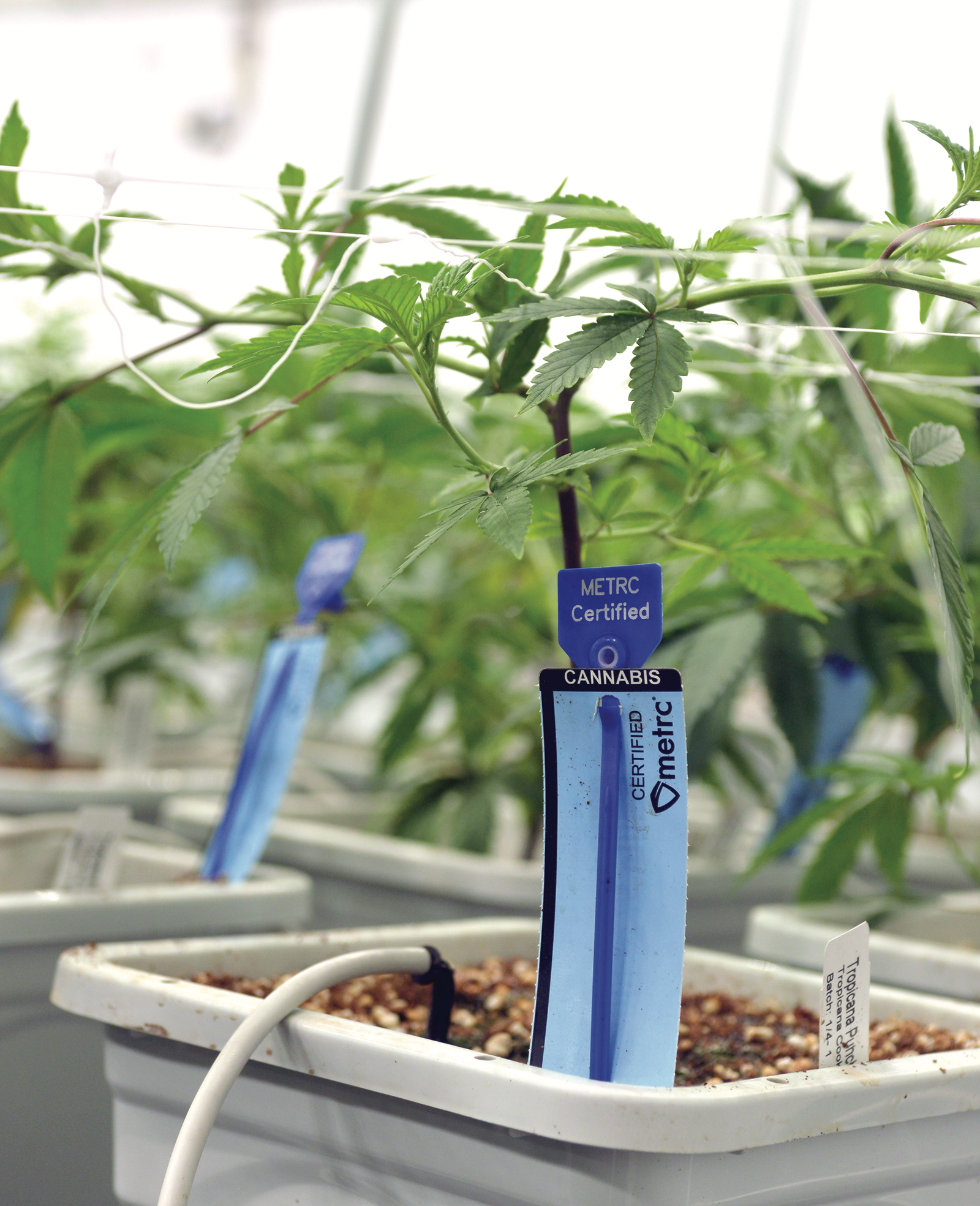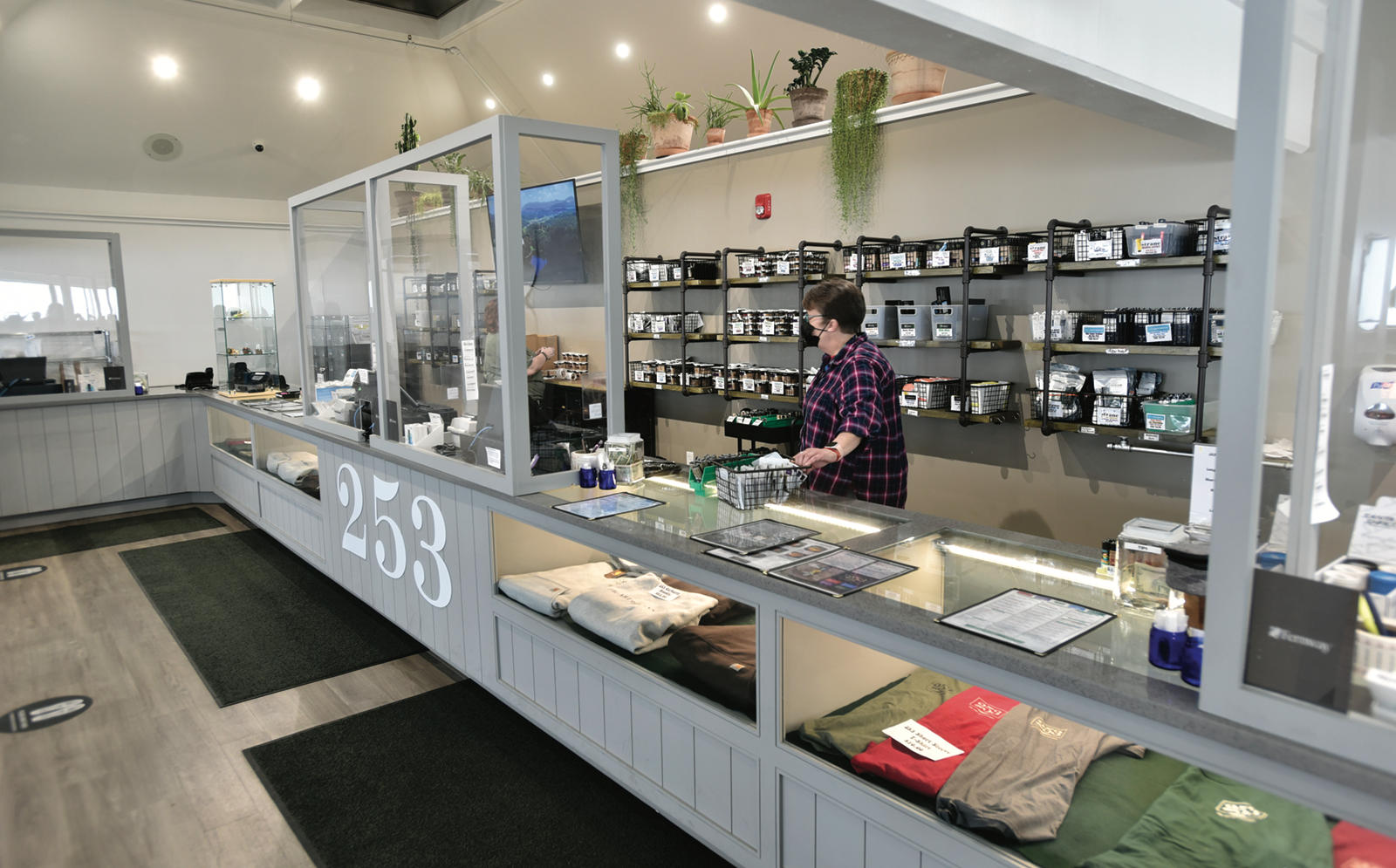Cohen said gummies offer an easy-to-understand example. Kosher gummies can’t be made with gelatin, which is made from collagen — which often comes from pigs. Kosher gummies are made instead with fruit pectin, a vegetarian product.
Rutherford said he has to buy kosher ethanol for the lab, a solvent used to prepare extracts, because of rules governing alcohol.
He said all the ingredients and products required by kosher rules are more expensive and harder to get. But the kosher designation fits with the organic rules 253 Farmacy also follows.
“It’s like a farm-to-table thing,” he said.
Rutherford, of Amherst originally, and partner Christopher Gallant of Granby, built 253 Farmacy in the former Hallmark School of Photography building. Their renovations created retail space and indoor growing space and an outdoor ornamental, non-cannabis garden.
“We really want to have a nice Zen feeling,” he said.
Cohen said 40% to 60% of the products in an average grocery store are kosher.
“It says there are another pair of eyes on it,” he said. “People see it as a safer, healthier product.”
Companies that get kosher certifications generally see a boost in sales of about 15%, and not all customers buy kosher for religious reasons.
But Rabbi Shlomo Yaffe of Congregation B’nai Torah in Springfield might be here to harsh the mellow.
He said that while Judaism permits alcohol in moderation, the faith’s teachings frown upon intoxication.
“Jewish tradition takes a dim view against altering one’s state of consciousness by chemical means,” he said.
Cohen said he focuses on medicinal uses of cannabis. But he doesn’t limit his work to the medicinal side of the legal cannabis industry. He also provides certifications to what the state of Massachusetts calls “adult use,” or recreational products.






